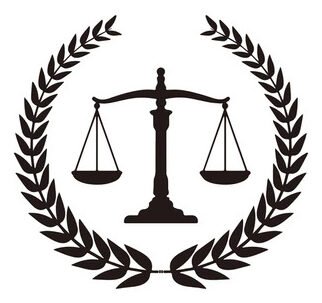At First Law Solicitors, we help clients navigate separation and divorce with clarity, control, and complete confidentiality. Our experienced family solicitors deliver structured, high-level guidance that protects your wealth, your children, and your emotional wellbeing.
Based in Manchester and serving clients across England and Wales, we are regulated by the Solicitors Regulation Authority (SRA ID No: 665823). Whether your matter involves complex assets, international property, or sensitive family issues, we bring precision, empathy, and professionalism to every stage of your case.


Divorce in England and Wales is governed by the Divorce, Dissolution and Separation Act 2020, introducing a no-fault framework that allows couples to confirm that their marriage has broken down irretrievably without assigning blame.
This reform aims to reduce conflict and enable couples to focus on practical, family-focused solutions. For those not yet ready to formally divorce, we also draft Separation Agreements and advise on Judicial Separation, providing legal clarity and protection while maintaining your marital status.




Trustindex verifies that the original source of the review is Google. Mr. Khan assisted me in every step of my immigration case. Great price as well. I cannot recommend them enough.Posted onTrustindex verifies that the original source of the review is Google. Great legal advice in a very professional manner. Also really appreciated the amount of time they gave me.Posted onTrustindex verifies that the original source of the review is Google. Exceptional servicePosted onTrustindex verifies that the original source of the review is Google. Very happy with the service I received! I genuinely recommend them to everybody.Posted onTrustindex verifies that the original source of the review is Google. Alhamdulillah got my Leave to Remain application approved, all thanks to the professionals at First Law Solicitors.Posted onTrustindex verifies that the original source of the review is Google. We are extremely satisfied with the service. My mother's immigration issues were resolved very smoothly as my mother was restricted with her entry to uk as a visitor by the border force. First law team made officials to apologise to my mother and rectify their error.Posted onTrustindex verifies that the original source of the review is Google. I was detained by immigration authorities and i contacted First Law Solicitors to do my bail. They are very good because they did my case urgently and i got my bail within 4 days. They know their job and very professional so i recommend them to all people in detention and other immigration mattersPosted onTrustindex verifies that the original source of the review is Google. I would like to express my sincere thanks to First Law Solicitors for their professional support throughout my citizenship process.Their guidance was clear and reassuring at every stage, and I felt well looked after from start to finish.Receiving my invitation to the citizenship ceremony has been a proud and emotional moment, and I'm truly grateful for their role in helping me reach it.I highly recommend their services to anyone in need of expert immigration advice.Posted onTrustindex verifies that the original source of the review is Google. Very Professional services. excellent and helpful people, especially Sahar Fasih, she was a great help for my application. Always available to answer any question.Posted onTrustindex verifies that the original source of the review is Google. Mr. Khan played a pivotal role in resolving a family matter that positively impacted the lives of nine others. His professionalism and efficient handling of my case were exceptional. I am truly grateful for him and his dedicated team.
The process begins when your application is submitted to the Family Court, either individually or jointly. Once issued, a 20-week reflection period begins, giving both parties time to consider arrangements for finances and children.
After 20 weeks, you can apply for the Conditional Order, confirming the court’s acceptance that the marriage has irretrievably broken down. Following this, a further six weeks and one day (43 days) must pass before applying for the Final Order, which legally ends the marriage.
While the statutory minimum timeframe is 26 weeks, in practice, most divorces in 2025 take between 8 to 10 months due to current administrative timescales. We ensure every step is managed precisely, so your case progresses smoothly and efficiently.
Visual Placement: Divorce Journey Roadmap
A divorce legally ends your marriage but does not automatically resolve your financial obligations. Our solicitors work to secure a full and final financial settlement that safeguards your future and prevents future claims.
We review every aspect of your financial position, including:
Where agreement is reached, we prepare a Financial Consent Order, ensuring the terms are fair, binding, and enforceable.
Our approach goes beyond compliance; we design settlements that protect your long-term security, working with tax, pension, and wealth professionals to achieve a balanced outcome.
For couples who wish to live apart without divorcing, we prepare detailed Separation Agreements. These define how finances, property, and parenting responsibilities will be managed while you live separately.
Though not automatically binding, they carry strong legal weight when both parties have received independent advice and made full financial disclosure. They are an effective way to set boundaries, avoid disputes, and lay a foundation for a future divorce if desired.
Where children are involved, our priority is to protect their wellbeing and provide stability during change.
We offer clear, practical guidance on:
Following the 2025 Child Maintenance reforms, the Department for Work and Pensions (DWP) now has enhanced powers to enforce child maintenance payments directly, ensuring faster and more reliable outcomes.
Our child-first approach focuses on minimising disruption, maintaining strong relationships, and ensuring each decision reflects the best interests of the child.
We are not an online divorce service. We are a strategic legal partner, combining deep expertise with discretion and forward planning.
Senior Oversight: Every case is led by an experienced solicitor with more than 20 years of post-qualification experience. Your matter is never passed down or automated.
Digital-First Convenience: We use secure, 2026-compliant digital tools — including Qualified Electronic Signatures (QES) and secure client portals — so your entire process can be managed safely from home or office.
Holistic Strategy: We don’t just finalise paperwork; we build settlements that anticipate future life changes, working closely with financial planners, pension advisers, and tax professionals to secure enduring solutions.
Our team has significant experience in cross-border and high-net-worth divorce matters, advising clients with assets in multiple jurisdictions or complex business structures.
We handle cases involving:
We ensure proceedings are issued in the most advantageous jurisdiction and that all financial orders are enforceable both in the UK and abroad.
Example Outcome:
Our solicitors recently secured a high-value cross-border settlement involving assets in three jurisdictions, achieving a negotiated outcome 15% higher than the opposing party’s final offer.
We combine legal precision with emotional intelligence. From your first consultation, you will know where you stand, what to expect, and how we will protect you.
Our goal is simple: to help you move forward with confidence and stability.
If you are considering divorce or separation, or need advice on financial or child arrangements, contact First Law Solicitors today for discreet and expert legal guidance.
📞 Call 0044 161 224 4066
🖋 Complete our online enquiry form to arrange a private consultation.

Copyright © 2025. First Law Solicitors. All Rights Reserved